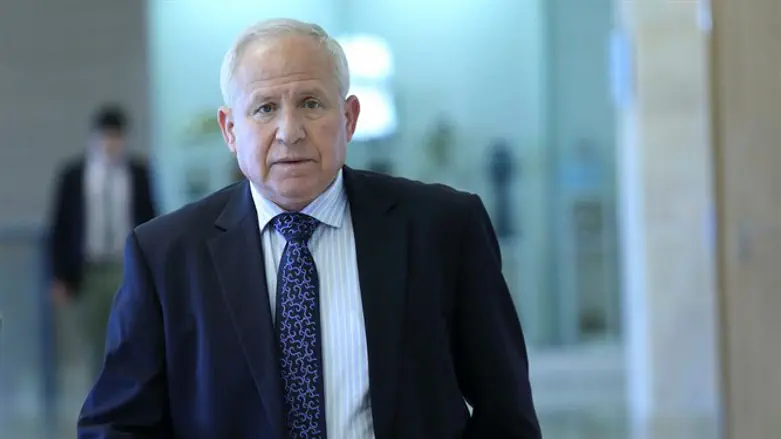
Foreign Affairs and Defense Committee Chairman MK Avi Dichter (Likud) told Arutz Sheva that in his opinion, a widescale military operation is the only way to end the "balloon terror" from Gaza.
"We need to understand that the issue of Gaza is not an issue that we can solve time after time, by responding to each balloon or rocket as an individual issue," he explained. "Gaza is a strategic issue for Israel. The solution needs to be systematic, something that will ensure the destruction of the terror military infrastructure built in Gaza over the past 15 years, and which has recently become much stronger."
"If it were possible to solve the problem diplomatically, that would be ideal. And what I mean by that is that countries such as Saudi Arabia and Egypt would involve themselves and work to destroy Hamas and Islamic Jihad's military terror infrastructure. I don't see that happening, unfortunately. The second option is the one which it seems we'll have to choose, and that is to destroy the terror infrastructure in a very long battle, and attain access to the various places in Gaza, like we did during Operation Defensive Shield. We need to understand that we need to end the terror from Gaza with a military solution."
Regarding the question of whether Israel needs to wait until after the elections, Dichter replied: "There's no way we can wait for the new Knesset or the next government to solve urgent security issues. We need to prepare an operation in Gaza, so that we can truly find best time for us and so that it will allow us to access every place in Gaza, just like we did in Judea and Samaria. I really hope this government or the next one will make the decision to do it. I don't see any other way to solve the situation in Gaza."
Regarding the summit on Iranian aggression, DIchter said, "Our northern border is completely different than our southern. This issue of borders is connected also to who the other players are. In Gaza there are only two players: Israel and the Palestinians. In Syria - the Russians are a major player, the Syrians are a major player, and so are the Iranians. Israel has a supreme interest in ensuring that we continue to have freedom of movement in the northern area which will not be torpedoed by the Americans or by the Russians. I think this meeting might lead to better things for Israel."
Dichter does not believe the Palestinian Authority's refusal to cooperate with the Bahrain conference should be a problem: "This summit is the first step in what the Americans are calling the 'deal of the century.' I am afraid the Americans are not fully aware of the fact that the Palestinians do not exactly plan to work with the deal. That is the nature of the Palestinians - they have no intention of cooperating with the American process. Israel does not need to be held up in any area because of the Palestinians. Even if we're not in Bahrain, we're aware of what's happening there. If we need to settle Judea and Samaria - we'll settle it without waiting for the Palestinians, and the same goes for Jerusalem and the Jordan Valley. We will not work according to the Palestinian clock, but according to Israel's [clock]."
"The responsibility for Oslo's failure falls 100% on the shoulders of the Palestinians. The Americans understand this well, and the fact is that they are trying the economic side. This has a lot of benefit, because it doesn't bother Israel and certainly won't bother the Palestinians. They will be partners in the economic deal, even if they aren't partners in the 'deal of the century.' We have a vested interest in seeing the Palestinian Authority's economy thrive and Gaza's economy thrive, but more than that we have a supreme interest in ensuring that the State of Israel's security is not harmed."